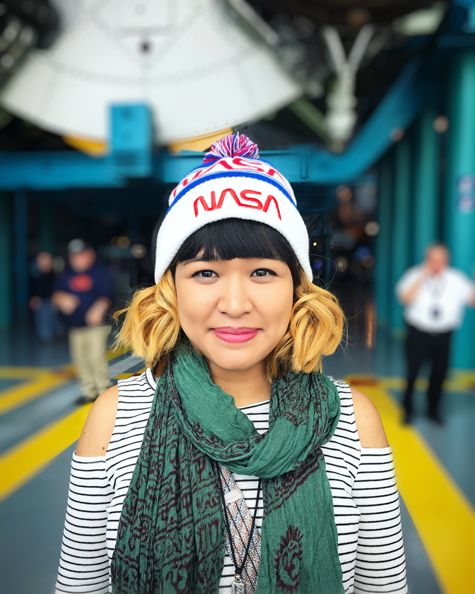Early Career Scientist Spotlight
Dr. Luoth Chou
Astrobiologist
Solar System Exploration Division
What is your research focus?
My research is focused on astrobiology and the search for life in the universe. The possibility that life could exist elsewhere has always captivated my imagination, and it was this question that drove me into a life-long pursuit of studying theories of life and the methods that allow us to detect life on other planets. Our observations of life on Earth, how it behaves, and what traces it leaves behind in our environment help us develop strategies to detect life on another planet. Those traces, called biosignatures, can range from easily recognizable features like fossils or DNA, to those that are more ambiguous, such as a particle (possibly a cell) moving in a manner that is inconsistent with randomness. My research is focused on “agnostic biosignatures”, a class of biosignatures that do not pre-suppose the presence of a particular life form (such as Earth-based life). I study what features of life could be common in the universe (rather than specific to Earth), and what kinds of chemical imprints unfamiliar life could leave behind. I specifically use flight-capable instruments, such as mass spectrometers, onboard various future missions like ExoMars and Dragonfly, to look for such biosignatures. Mass spectrometers are an important analytical platform used in space exploration because they allow us to study the chemical composition of a sample at very high resolution and sensitivity.
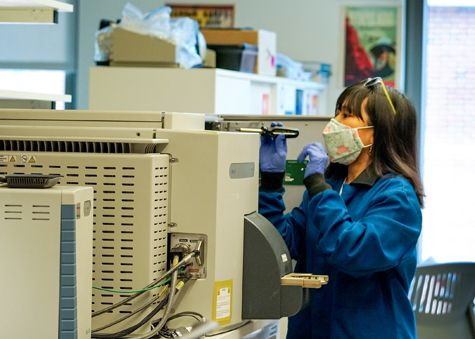
Credit: Nicole Wagner
What motivated you to pursue a career in astrobiology?
Definitely, curiosity. I fell in love with biology the first time I learned about the cell. I was perplexed by how biochemistry felt so removed from our intuition yet can give rise to the astounding complexity of life that we observe, day to day. This curiosity drove me to wonder where life came from, and eventually made me question how life started and whether life can be “out there”. After taking an Astronomy 101 class in college, I learned about how big the universe is, and it drove my curiosity about life elsewhere even further. I inevitably ended up pursuing a career in this field, and I am ecstatic to be working at a place like NASA.
What aspect of your work excites you the most?
The most exciting aspect of my work is sharing it with the public! I love being able to speak to the community, whether through outreach programs and activities I’ve been a part of, or sharing the excitement about space exploration and missions with my friends, family, and sometimes even strangers. To me, this is more rewarding than being in the lab or publishing papers, and it continues to remind me why I do the work that I do every day.
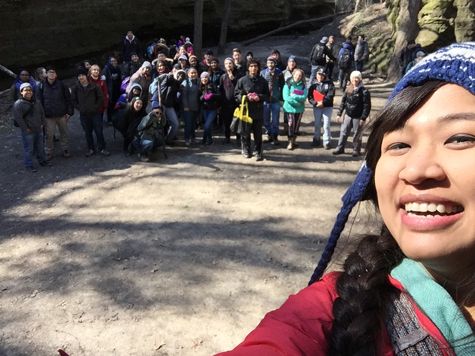
Credit: Lu Chou
What research accomplishment are you most proud of?
It’s no mystery that graduate school is hard, but my PhD work remains my proudest accomplishment yet (although it has not been very long since I obtained my PhD!). My graduate research was focused on organic biosignatures in a subsurface environment in Antarctica, which proved to be an extremely enigmatic system to study. I discovered that many of the organic biosignatures we observe in cold, slow-growing systems like Antarctica are signatures of the past. Some of those biosignatures included signs of photosynthetic life (despite this subsurface system being totally dark) and algal cells that still looked intact and preserved after millennia of isolation! Most Solar System bodies that are astrobiology targets (Europa, Enceladus, Titan, etc.) are much colder than Antarctica. This means that if we encounter biosignatures on those bodies, we might have to examine how slow-growing those life forms are, and ask the questions: did we encounter extant (currently living) signatures of life? Or are they signatures of the past?
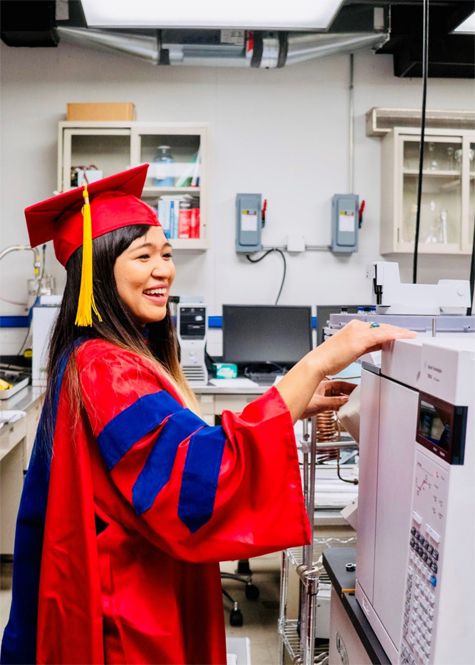
Credit: Dan Solomon
What early career advice do you have for those looking to do what you do?
I have two pieces of advice: always keep your eyes open for serendipitous opportunities, and be open-minded to failures.
(1) I always knew that I wanted to become a scientist, so I followed the usual recommendations for someone who wanted a research career (i.e., doing an internship, look for opportunities to gain hands-on lab/research experience, learn how to read scientific papers, go to graduate school, etc.). But my path was also influenced by luck—being in the right place at the right time with the right people. That’s why it’s important to keep in mind that opportunities can come from random circumstances and can lead you to your next step. Be on the lookout for those opportunities, and be open to networking with people you who might be outside of your interested discipline.
(2) While I worked hard towards my goals, I also learned quickly that science is filled with failures, which we often don’t talk about. Failures can come in the form of failed experiments in the lab, rejections from graduate school, grant proposals not being selected, etc. These failures were extremely important to me because they taught me that success doesn’t happen overnight, and it doesn’t happen perfectly. Being open-minded to those failures and not attributing them to your self-worth can be a really useful toolkit for your future in science. Along with these failures are also your determination, improvement, persistence, and perseverance (NASA even named a rover after it!), and these are all the traits that you will have because you experienced failures.
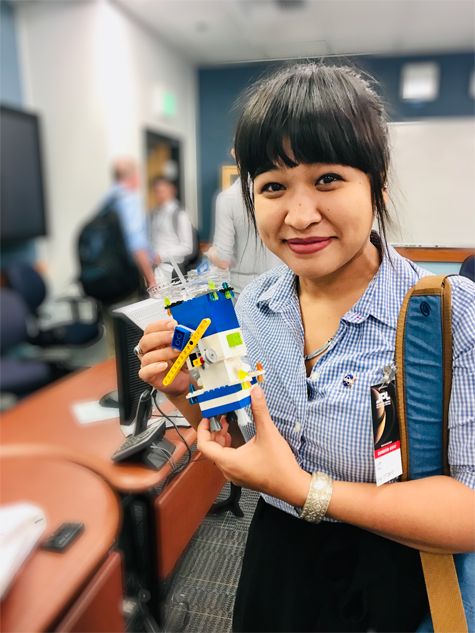
Credit: Lu Chou
If you were to expand your current research focus, what new topic would you explore?
I would really love to explore the possibility of exotic life in the Solar System. Our search focus in astrobiology so far have been strongly driven by our understanding of life on Earth. Yet if we open our minds to the possibility of strange, weird life, what could they look like? Could there be gas-based life in the clouds of Jupiter, feverishly dreamed by Carl Sagan in the Cosmos Series? Could there be life in the hydrocarbon lakes of Titan that uses reverse lipid membranes to encapsulate itself? Could life be in the solid form, living ever so slowly and evading our limited human perceptions? Exotic life inspires our imagination about what’s possible out there, and it is this imagination that speaks to our yearning to not be alone in the universe. Some of them could even be beyond our reaches, spacefarers that inhabit the exoplanets we discover every day. If I were to expand my current research focus, I would love to learn more about the alternative forms of life there could be, which sounds a lot like science fiction. But what is science fiction if not the reflection of ourselves?
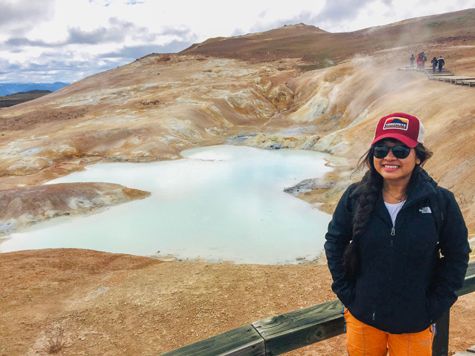
Credit: Lu Chou
What do you like to do in your free time?
I never truly appreciated the outdoors until I joined an Earth science department in graduate school and went on many geology field trips. Since then, I just cannot get enough of hiking, camping, biking, and exploring the environment. I also love to cook (see photo!) and have started to expand my culinary attempts a lot since the pandemic started. I also make bath products, allowing me to experiment with some chemistry at home, and I’m learning how to cross-stitch!

Credit: Lu Chou
Biography
Home Town:
Phnom Penh, Cambodia
Undergraduate Degree:
B.S. Microbiology, University of Maryland, College Park (College Park, Maryland)
Post-graduate Degrees:
Ph.D. Earth & Environmental Sciences, University of Illinois at Chicago (Chicago, Illinois)
